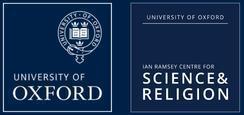Plan
Introduction
We have held four workshops:
- Workshops 1.1 in February and 1.2 in March were online-only for listening to practitioners.
- Workshop 2 in May was hybrid Oxford/online for theologians developing initial proposals.
- Workshop 3 in September was in-person only for proposing the Oxford Oath.
All workshops were by invitation.
The Events page provides the dates and times.
Below we have the details which were distributed prior to the events.
We have now made available a draft of the Oxford Oath and open letter text, and are gathering wider feedback. This process of refinement will continue in 2026, and in due course will also include opportunities to sign the open letter, and profess the oath.
Workshops 1.1 and 1.2: listening to practitioners
The first stage of the project aims to hear from practitioners in AI. This includes scientists and engineers who are advancing the state of the field through academic research, and those working in industry who are often leading the way in new developments. The aim of having these practitioners present is for them to present three aspects of their work:
- an introduction to the technical side of AI which their work focuses on, aimed at helping non-specialists get a basic sense of the breadth of technical approaches within the broad category of AI
- an overview of the kind of daily work involved in their specialisation, to help non-specialists gain awareness of the details of what an AI specialist might do on a day-to-day basis
- a survey of the ethical issues which arise from their specific work in AI, so that the theological ethicists attending can in time develop ethical proposals which attend to the actual and varied ethical issues faced by practitioners
Practitioners are not being asked to provide answers to ethical questions, and indeed the whole point of this exercise is to surface the questions which are challenging to answer. Easily answered ethical questions are not particularly interesting, even though in practice they are a relief to encounter. This stage is intending to identify the diversity of ethical issues which practitioners encounter, and especially to attend to differences of cultural and social context which provoke differences of ethical challenge. A great deal of AI ethics is generated from the cultural West, and the intent is to hear from people in diverse cultural and social settings, not because there are likely to be universal ethical answers, but in order to avoid reductionist and culturally imperialist approaches to AI ethics.
Practitioners are also not expected to offer theological contributions, as that is intended for a later stage of the OCTAI project. The aim of the project is to bring together practitioners and theologians in a collaborative approach, which involves first listening to practitioners about their craft and its ethical challenges, before theologians and practitioners will work together in a later stage on developing theological proposals which attempt to address those challenges.
While the project is centred in Christian theology, the project aims to gather input from other religious contexts, and so practitioners who are able to speak from other religious perspectives are welcome and indeed beneficial to the project.
The workshop will be held online to maximise contributions from geographically distant contributors. Workshop sessions will be recorded, but will only be distributed to other attendees, and attendance is on an invite-only basis. The workshop welcomes presentation of existing published work, or of early-stage work which may in the future be published, noting that the later stages of the OCTAI project will use information presented to develop publishable work in the field of theological ethics, which may refer to workshop contributions. Workshop contributors can request that their contributions only be referred to anonymously, although contributors’ basic details of their country and categorisation of work (academic/industry) must be permitted in order to participate.
Workshop 2: initial theological proposals
To be held as a one-day hybrid workshop in May, this event will bring together theologians to develop initial ethical proposals informed by the listening workshops. More details will be announced closer to the workshop date. The workshop will be in Oxford for in-person participants, and will use the facilities of Reuben College to provide high-quality access to virtual participants.
Workshop 3: Oxford Oath
This final workshop will be a 2-day, in-person only event in Oxford on the 22nd and 23rd of September. The format will bring together practitioners and theologians, and will have only six presented talks across the two days, with the talks providing focal points for significant collaborative work on developing the Oxford Oath.



